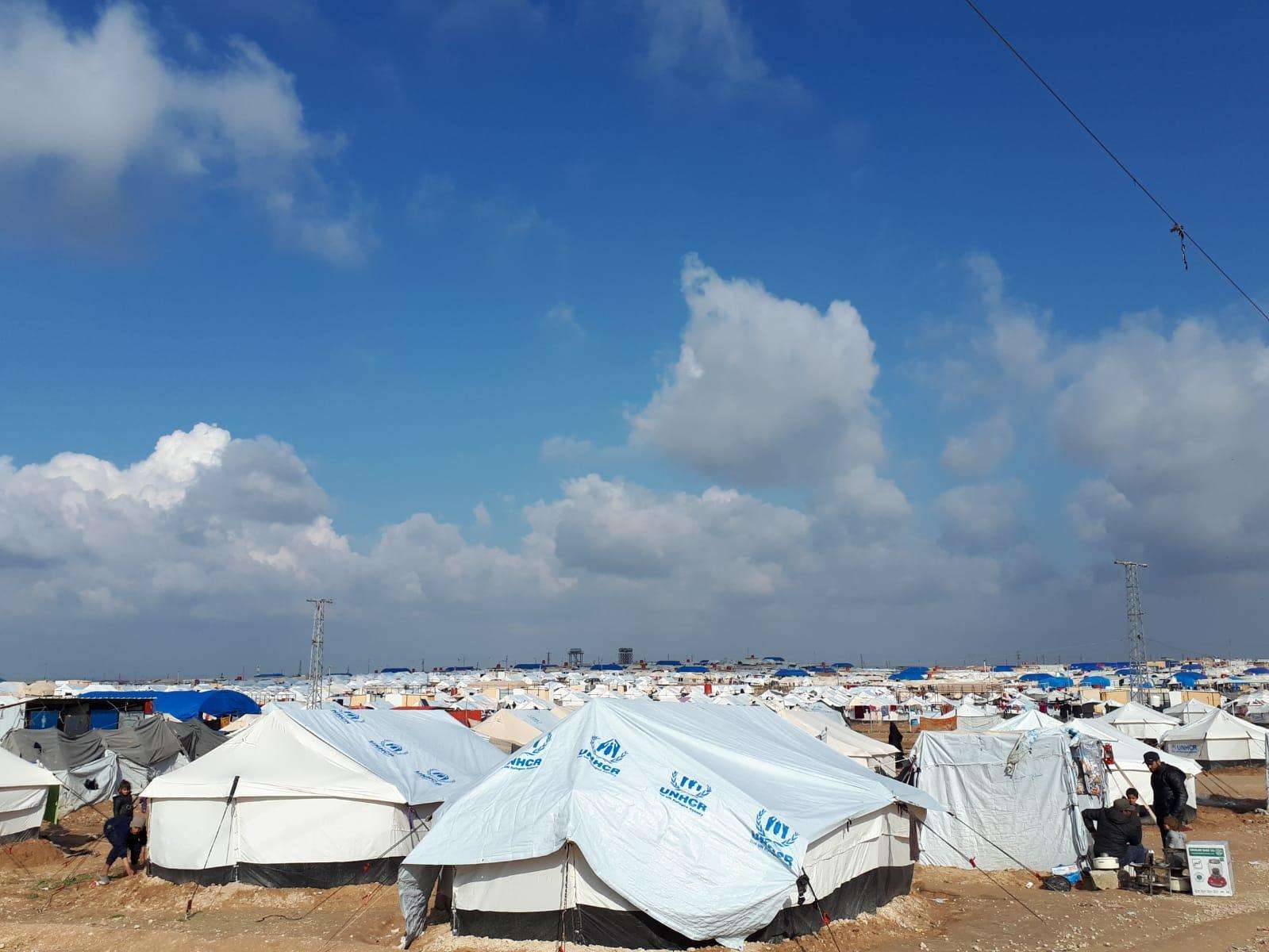Amsterdam/Northeast Syria, May 16, 2019—Children are dying from preventable diseases and women are giving birth in unsafe conditions in Al Hol camp, northeastern Syria, after being displaced from areas where the final battles between the Islamic State (IS) group and Syrian Democratic Forces (SDF) took place, said the international medical humanitarian organization Doctors Without Borders/Médecins Sans Frontières (MSF) Thursday.
According to the camp’s authorities, the overcrowded site now houses some 73,000 people, who are kept in the area by local security forces. Ninety-four percent of them are women and children.
Most of Al Hol’s residents arrived between December 2018 and March 2019 from Deir Ez Zor governorate after fleeing fierce ground fighting and aerial bombardments or being forced to leave the area. Upon arrival, some were wounded and most were extremely weak after surviving without sufficient food or medical care for weeks near the frontlines of the fighting. Forced displacement exacerbated their poor health conditions, as the long journey took place under harsh weather conditions, with security measures prioritized over the needs and protection of civilians.
“They arrived crammed into the back of trucks,” said Will Turner, MSF emergency manager for Syria. “Most were covered in mud, many were wounded or suffering from illness. People were clearly hungry, and many children were malnourished.”
A humanitarian crisis quickly unfolded in Al Hol camp, where the new arrivals had insufficient food, water, shelter, sanitation, and health care.
"Health care should not be compromised."
MSF launched a response in Al Hol camp in January 2019, initially supporting the provision of emergency medical care in the reception area for new arrivals and providing essential relief items. MSF provided 309 family tents, 251 hygiene kits, 24,000 blankets, and 1,079 kitchen kits. Based on people’s needs, MSF is also providing emergency triage in the reception area and constructing water and sanitation facilities. In February 2019, MSF opened a comprehensive primary health facility in the camp providing round-the-clock emergency care.
While some basic health care is available, it is not evenly distributed, nor is it equally accessible by everyone living in the camp. The so-called annex area, where “third-country nationals” are held, is a separate fenced-off area. It is holding 11,000 non-Syrians, 7,000 of them children.
Due to security concerns from the authorities this group has additional restrictions placed on them that prevent free movement to other parts of the camp, where some basic health facilities do exist. Many expectant mothers in the annex area have no choice but to give birth inside their tents. MSF is running a mobile clinic in this annex area of the camp.
“There are humanitarian organizations and donors that are not willing to provide services to certain areas of the camp due to people’s perceived affiliations,” said Turner . “Health care should not be compromised. Regardless of people's background, nationality, status, and origin of displacement, everyone is entitled to access to medical and humanitarian assistance in a timely manner.”
Elsewhere in the camp, water and sanitation services fail to meet minimum emergency standards. Reliable water provision throughout the camp is inconsistent. Numerous latrines are non-functional and, as a result, people are forced to defecate in the open.
“We are seeing patients with illnesses such as acute watery diarrhea due to the poor water and sanitation conditions,” said Turner. “We are concerned that this situation will only deteriorate as the summer approaches.”
"No child should die because of neglect."
Patients with medical complications face numerous barriers to receiving permission for hospital referrals outside the camp, sometimes delaying their treatment. Meanwhile, those who are transferred to the hospital often find there is no space to accommodate them due to overcrowding in the region’s health facilities. There are also reports that children are dying in their tents.
“As summer temperatures start to soar, we are very concerned about the impact of people living in unfit conditions,” said Turner. “No child should die from dehydration or other preventable diseases because of neglect and lack of access to basic health care.”
MSF is continuing to expand its medical activities both inside and outside the camp. With numbers of new arrivals stabilizing over recent weeks, the needs of people in the camp are far from being met, and the current situation requires a more organized and long-term humanitarian response.
MSF calls for humanitarian assistance to Al Hol camp to be scaled up, for aid organizations to be given access to all parts of the camp, and for people to be treated in a fair and humane way in line with international humanitarian law and principles.
Since the start of operations at the camp, MSF teams have treated 17,113 patients, 1,238 of them for medical emergencies.
MSF is also running three outpatient nutrition centers for children and pregnant women and a 23-bed inpatient therapeutic feeding center providing 24-hour care for patients with severe malnutrition. Since opening, the inpatient therapeutic center has been operating at maximum capacity.
MSF is also setting up a community health surveillance system for monitoring potential disease outbreaks. Since early April, MSF has been providing home-based wound care for immobile patients and organizing referrals to Tal Tamar hospital, where MSF provides surgical care. The team in Tal Tamar has conducted 75 surgeries since April.
So far, the MSF mobile medical team in the annexed section of the camp has provided more than 3,500 medical consultations.




